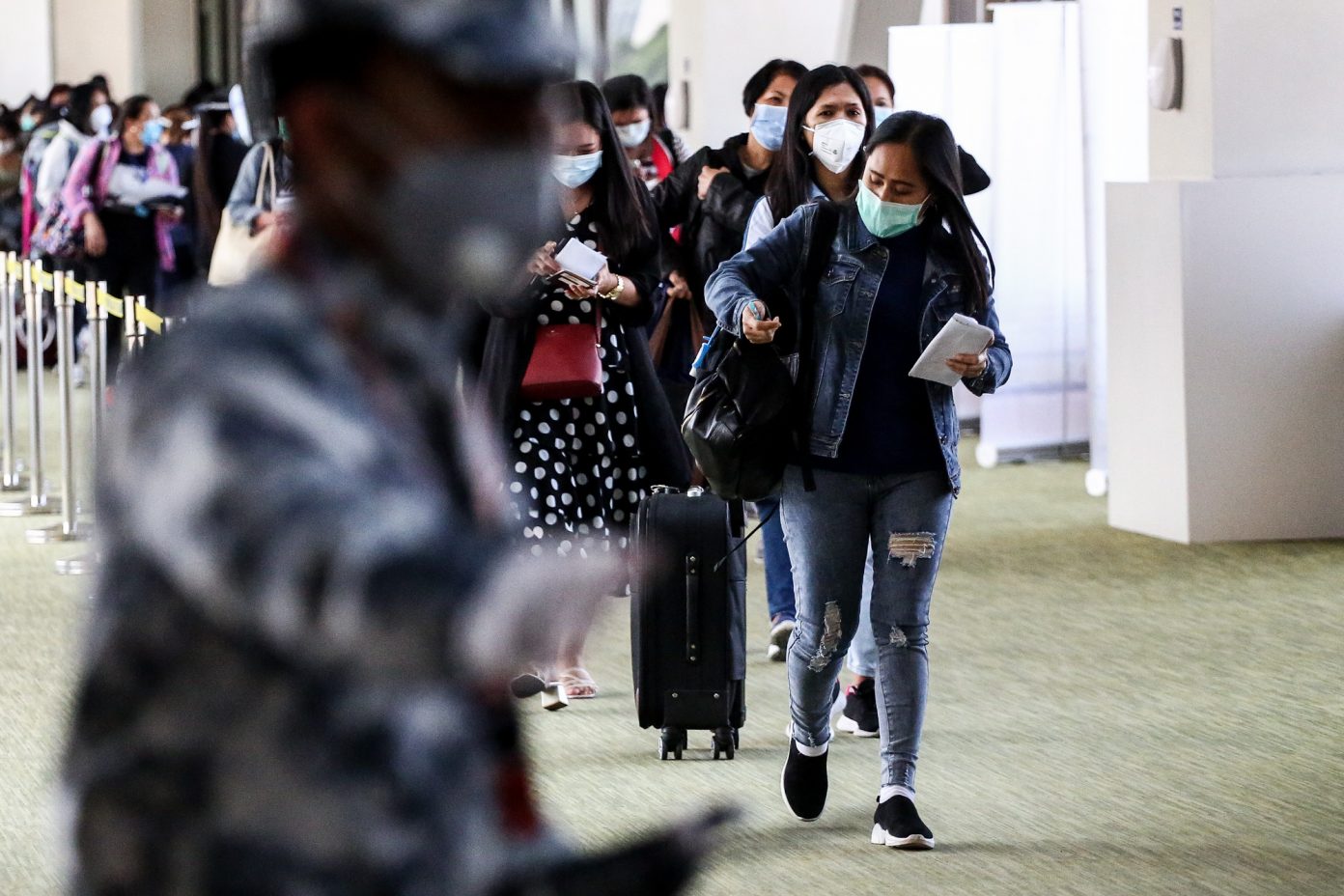As we observe the solemnity of Holy Week through various traditional practices, my thoughts are drawn to our kababayans (fellow Filipinos) abroad who mark this significant occasion from far away from their homeland.
In contemplating their experience, I am reminded of a poignant passage from the Gospel, particularly resonant during this season, especially on Good Friday as we commemorate Jesus’ passion, death, and crucifixion. It is the narrative from the Gospel of John, capturing a profound moment while Jesus hung upon the cross.
“When Jesus saw his mother and the disciple whom he loved standing beside her, he said to his mother, ‘Woman, here is your son.’ Then he said to the disciple, ‘Here is your mother.’ And from that hour the disciple took her into his own home.” (John 19:26-27)
The central theme of the Gospel passage in John 19:26-27, where Jesus entrusts the care of his mother Mary to the disciple whom he loved, can indeed be aptly related to the situation of Overseas Filipino Workers (OFWs) and their families.
In this context, the passage can be interpreted as highlighting the challenges of familial separation and the importance of caregiving responsibilities within the context of Filipino migration.
Jesus, while enduring his own suffering on the cross, demonstrates profound compassion and concern for his mother Mary. He entrusts her care to the disciple whom he loved, indicating a sense of familial duty and responsibility even in the midst of adversity. This act underscores the significance of maintaining familial bonds and ensuring the well-being of loved ones, even when physical distance separates them.
This theme resonates deeply in the context of OFWs and their families. Filipino migrants often leave their homeland to seek better opportunities abroad, driven by economic necessity and the desire to provide for their families. However, this decision comes with the heavy burden of prolonged separation from their loved ones, particularly parents leaving their children behind or children leaving their aging parents.
The situation can be likened to the scenario where the parents, represented by Mary in the passage, are left longing for the presence and care of their children who have migrated overseas. They may find themselves asking, metaphorically, “Where is your son or children?” as they grapple with the absence and longing for familial connection.
The children who have migrated may also experience a sense of responsibility towards their parents left behind in the Philippines. They may feel the weight of their absence and the need to ensure their parents’ well-being from afar. In this sense, they may be asked, metaphorically, “Where is your mother or parents?” as they navigate the complexities of caregiving across borders.
This dynamic reflects the sacrifices and challenges faced by OFWs and their families, as they strive to maintain familial bonds and provide for each other’s needs despite the physical distance separating them. Like the disciples whom Jesus entrusted with caring for Mary, OFWs often rely on extended family members or support networks to ensure the welfare of their loved ones back home.
This passage underscores the importance of community and solidarity within the Filipino migrant diaspora. Just as the disciple took Mary into his own home, OFWs and their families often find support and companionship within migrant communities abroad, offering each other practical assistance, emotional support, and a sense of belonging in the face of separation and adversity.
Addressing the challenges faced by Overseas Filipino Workers (OFWs) and their families requires not only individual efforts but also a concerted political will from leaders in the Philippines. Government initiatives and policies can play a crucial role in providing support systems and resources to alleviate the hardships experienced by migrant workers and their families.
This entails implementing programs that facilitate reintegration and economic opportunities for returning OFWs, ensuring the protection of their rights and welfare abroad, and fostering sustainable development initiatives that create job opportunities domestically.
By prioritizing the needs of OFWs and their families on the political agenda, leaders can demonstrate a commitment to upholding the dignity and well-being of Filipino migrants and their families, thereby fostering a more inclusive and supportive society for all.
The central theme of John 19:26-27 resonates with the situation of OFWs and their families, highlighting the challenges of familial separation and the enduring bonds of love and responsibility that transcend physical distance.
It serves as a poignant reminder of the sacrifices made and the resilience shown by Filipino migrants as they navigate the complexities of migration while striving to uphold the values of family, compassion, and solidarity.
Amid our reflections on faith and familial bonds, it is essential to acknowledge the sobering reality of abuse within religious communities. Recent allegations have surfaced regarding Pastor Apollo Quiboloy, the founder and owner of the Kingdom of Jesus Christ and a self-proclaimed appointed son of God but is now accused of exploiting his position to perpetrate sexual advances against female members of his congregation and financial manipulation.
These allegations not only shake the foundations of trust within the religious community but also resonate deeply with Overseas Filipino Workers (OFWs) who may have been among his followers. The reach of such abuse extends far beyond geographical boundaries, serving as a stark reminder of the vulnerability of individuals who place their faith in charismatic leaders.
As we navigate the complexities of faith and migration, we must confront instances of abuse and exploitation, seeking justice for the victims and holding accountable those who betray the sacred trust placed in them.
Bishop Antonio Ablon of the Iglesia Filipina Independiente (Philippine Independent Church) is presently the Chaplain of St. Catherine’s Anglican Chaplaincy in Stuttgart, Germany of the Diocese in Europe, Church of England. He is a former chaplain to the seafarers in Hamburg, Germany and Bishop of IFI Pagadian. The Philippine Independent Church is a member of the global communion of the Anglican Church. Bishop Ablon is one of the most persecuted church leaders in the Philippines. In 2021, the German government officially granted him asylum.







